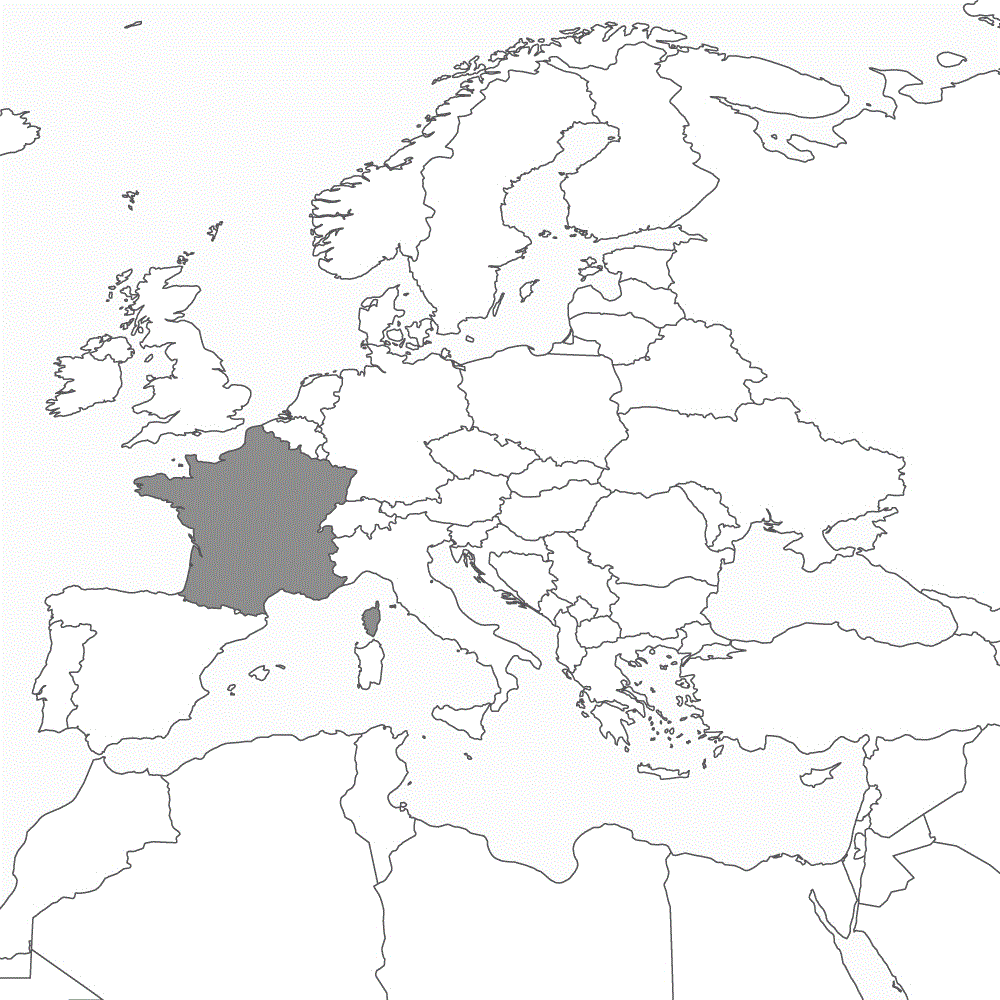The strongest Bank and the decline of the Euro
FRANKFURT/ROME/PARIS (german-foreign-policy.com) - The Ministry of Finances in Berlin has denied reports about a return to the D-Mark and the symptoms of disintegration in the current Euro-Zone. The reason for the reports are the recommendations to the effect that the economic tensions between the member states of the European monetary union could be balanced through the re-introduction of national currencies. Scenarios concerning an abandonment of the Euro were drawn up by the Scientific Research Service of the German Parliament already in April 2005. The following June, the Italian Labor and Social Minister called for a referendum on the return to the Lira, and initiating an Italian policy of interest rates in order to stave off the threat of bankruptcy. The German Minister of the Economy, Wolfgang Clement, also complains of the uniform interest regulations of the Euro system, which are leading to a generalized paralysis. A French analyses, at the disposal of german-foreign-policy.com, recommends the re-introduction of national currencies, while maintaining a mutated Euro. Several German retailers are already displaying their wares with double price tags in two currencies. The continued discussion about the dissolution of the present Euro zone is leading to a clear downswing in the exchange rates.
Tuesday the Euro dropped to a reference course under US Dollar 1.20, which is considered alarming on the currency markets. Subsequently the European Central Bank (ECB) permitted a slight rise in the exchange rate, on Wednesday, and offset the short-term losses. This was an psychological operation, Frankfort traders told german-foreign-policy.com pointing to the continued downswing of the Euro.
Blocked
The weakness of the currency reflects the crises in several of the Euro zone states, suffering under loss of revenue, growing debts and continued strangulation of private consumption. This is caused by disparities in the production sector, which cannot fully use the supply potential. The consequences (unemployment and reduction in real income) are particularly affecting Germany, the Netherlands, Italy and Portugal. Formerly these countries used national currency strategies, increasing or lowering the rate of interest and printing more money, whereas today they succumb to the monetary objectives of the ECB. The Frankfort Institute has committed itself to an inflation margin of no more than 2 Percent and thus blocks any compensation measures for dealing with the crisis.
Aggressive
The London based HSBC, the second largest bank on the continent, pointed to the irritating consequences of this policy in a study, published on July 5.[1] The crash of the monetary union is a real danger, if reform measures are not taken - in Italy through the re-introduction of the Lira. Other observers remark, that Italy could only gain by leaving the Euro zone, introducing a new Lira (NLI) and exposing it to a devaluation of about 20 Percent. In this case, "GaveKal Research" predicts an immediate redemption of Rome's budget deficit by about one third and a decrease of the unemployment to about 7 Percent.[2] The trick to be used: "The Italian liabilities would be changed - from a strong (Euro) currency, that cannot be controlled by the country, into a weak currency, that one can reprint as desired". Berlin is being recommended to take the same path, unless the ECB decides an "aggressive growth policy" by lowering the interest rates down to around zero.
Overrated
Since such a policy change is nowhere on the horizon, German and French Economists are doubting that the monetary union can be sustained. In an (economic liberalist) study prepared by the University of Bonn, the eventual collapse of the centralised monetary policy is viewed without the slightest remorse.[3] A current French analysis, at the disposition of German-foreign-policy.com, points to incongruities in the Euro-Zone, as came to light at the most recent budget negotiations in Brussels in mid-June.[4] The authors view the Euro as chronically overrated and therefore incapable of prevailing in the international competition against the dollar.
Foretaste
The recent idea from French government circles, of establishing a German-French nucleus currency, by pruning off those in the EU that are bankrupt, has been defeated. The return to national minting alone would signal an end of the dysfunction in the EU, according to the brochure. In order to avoid the abrupt termination of the circulation of the Euro, the new, national currencies, yet to be created, and the European Central Bank's creation should "co-exist." The authors warn that in the case of the continuation of the current ECB system, social revolts are to be anticipated. The referendum to the Constitutional Treaty May 29, in France gave a foretaste of what can be expected.
Reserve
According to German economists in Bremen, the Euro is not to be saved through re-nationalization, but rather through an even more stringent system of supra-national monetary policy.[5] These analysts criticize the fact that the ECB is not really a reserve bank. It directs the currency emission, but leaves the printing and minting up to the still functioning national banks. In the case of state bankruptcy, their seriousness is not necessarily proven, according to the authors, who would like to see the Euro placed under the auspices of a single reserve bank - the German "Federal Bank is the strongest bank in the Euro-system."[6]
[1] European Meltdown? Europe fiddles as Rome burns. HSBC Global Research, London/Düsseldorf, Juli 2005. HSBC ist in Deutschland u.a. bei Trinkaus und Burghardt (Düsseldorf) vertreten.
[2] Divorce Italian Style. GaveKal Ad Hoc Comment, Hong Kong/Stockholm 13.06.2005
[3] Dieter Spethmann und Otto Steiger: Deutschlands Wirtschaft, seine Schulden und die Unzulänglichkeiten der einheitlichen Geldpolitik im Eurosystem. Working Paper B 29/2004; Zentrum für Europäische Integrationsforschung, Bonn
[4] Pierre Leconte und Edouard Husson: Quel avenir pour l'euro? Zirkular, 22.06.2005
[5] Gunnar Heinsohn und Otto Steiger: Die Konstruktionsfehler des Eurosystems, Bremen 2000
[6] Otto Steiger: Der Staat als "Lender of last resort" - oder die Achillesferse des Eurosystems. Working Paper B 22/2002; Zentrum für Europäische Integrationsforschung, Bonn
